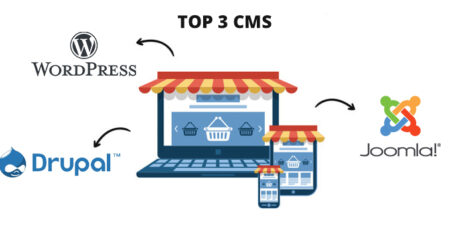Everything you Need to Know About Cross – Platform App Development
In the today’s digital world, there are innumerable devices running various operating systems all around the world. To reach a larger audience, you would have to publish your mobile application on every one of these various operating system. However, building a mobile application for different operating systems isn’t a simple task, no doubt. You would actually create the application numerous times for different operating system with various technologies and various tools.
This can expend a great deal of time, money and effort, especially if you are an indie developer or a startup and you don’t have that many resources to spare. This is where cross-platform app development comes in. Here, we will be discussing about cross-platform development, some top cross-platform development frameworks including React Native, Xamarin, and Apache Cordova, and when it’s best to use each one of those cross-platform tools.
Cross – Platform Development
Cross-platform mobile app development is the process of building mobile applications that can be deployed or published on multiple platforms on different platforms using a single codebase, rather than building up the application multiple times utilizing the respective native technologies for each platform.
Cross – Platform Development Pros
There are many advantages when it comes to cross-platform development, including:
- Reusable Code: Cross-platform development tools permit you to write your code once then export your application to many operating systems and platforms without making a dedicated application for every platform.
- Convenience: Cross-platform development tools saves you from the problem of learning various programming languages and rather offer you one substitute for these various technologies.
- Maintainable Code: Whenever you modify or update your application, you just need to refresh your codebase once and the changes would be synchronised and reflected in all the applications on various platforms.
- Cost Efficiency: Cross-platform development permits you to save the expense of having various developers working on the different versions of your application and substituting them with one team. Most cross-platform development tools are also free to use, with some of them having paid subscription for additional features.
- Market Reach: By publishing your application on multiple platforms, you are reaching a larger user base and consequently a higher return on investment and higher revenues.
Cross – Platform Development Cons
While cross-platform development tools have a lot of advantages that make them commendable, they absolutely accompany a couple of setbacks and there are a couple of circumstances when cross-platform development probably won’t be the best approach for you.
- Performance: While some cross-platform development tools give you the performance that is almost similar to native application, they are still never fully as great. That is the reason you shouldn’t utilize cross-platform development tools if your application’s performance is a high priority for you.
- 3D and Graphics: Simply like performance, cross-platform development tools aren’t known for conveying the best graphics and client experiences and can lack access to core OS libraries like graphics. Cross-development probably won’t be the best choice for you if your application depends vigorously on graphics, which is the situation with numerous mobile games.
- Platform-Specific Features: While cross-platform development tools offer a large number of the essential features shared between various stages, they can lack some specific features offered by Apple, Google, and Microsoft on their respective operating system.
- Device-Specific Features: Cross-platform development tools can give you access to different aspects of your device, like camera or GPS, however, if your application needs to access and manage the device hardware directly, at that point it’s better for you to build up a native application.
Cross Development App Frameworks
There are various cross-platform app development frameworks out there, each with their own set of advantages and disadvantages, however, according to the following trend where we have picked the most competitive and top-performing frameworks available in the market today.
- Xamarin: It is an open-source framework that was launched to take care of the issue of disjointed native technology stacks, which made mobile application development a troublesome and costly issue. It was later acquired by Microsoft in 2016, therefore, giving it more credibility.
- React Native: This framework causes a wave in the market for hybrid frameworks. Within a few years of its introduction in the market, it is already one of the most popular ones and the most trending one among the 5 cross-platform app frameworks.
- Adobe PhoneGap: PhoneGap was earlier known as Apache Cordova. It is possessed and sourced by Adobe. It is a simple cross-platform app development framework that uses HTML5, CSS, and JavaScript.
- Ionic: Ionic is an open-source cross-platform application framework and licensed under MIT. It uses HTML5 for translation. Much the same as AngularJS in design and structure. It additionally acquires a couple of design elements from iOS just as Android. It allows you to build native like hybrid applications for Android and iOS and progressive web applications.
Cross-platform development tools can save you a lot of time during your development cycle and help you with reaching at the biggest number of customers by publishing your application on various platforms utilising minimal resources. They are unquestionably not great, however, and will never turn into a substitute for native app development. There will be trade-offs, yet you win a few and you lose a few.
Even, when deciding to build up your application utilising a cross platform development tool, you are confronted with so many different tools and frameworks that it tends to be difficult to settle on which one to go with. The most ideal approach to choose the cross-platform development framework that works best for you is try them all and go with the one that works for you.
In the event that you don’t have the time, which is usually the situation, a little research on some of the top cross-platform development frameworks can be sufficient. Weigh the upsides and downsides of everything, see which one suits your needs, and acknowledge the fact that you’ll need to take the good, the bad, and the ugly.




